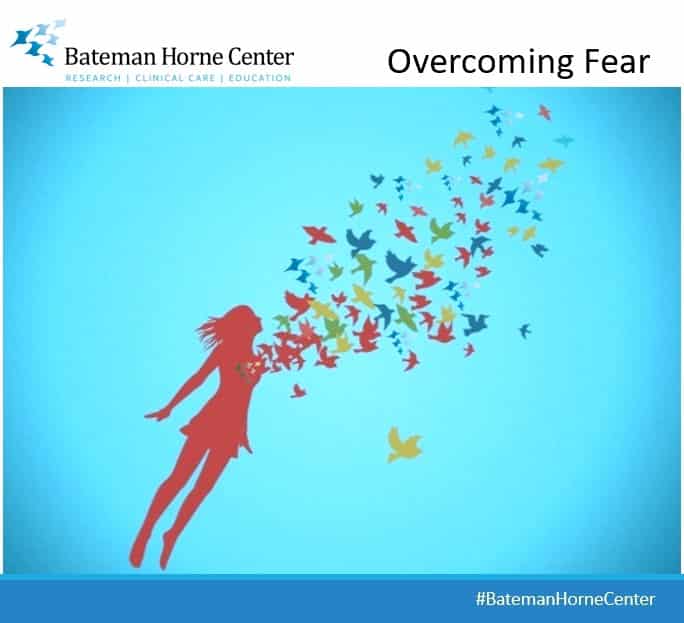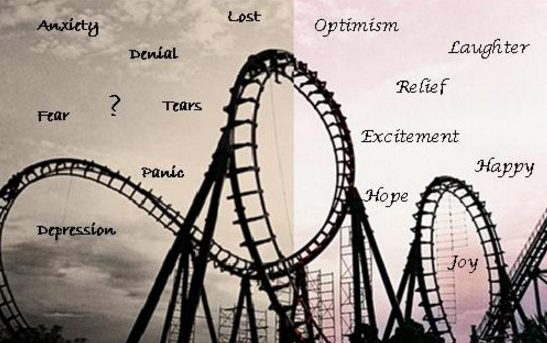Being diagnosed with a chronic illness such as ME/CFS or Fibromyalgia can be quite a blow. Being afraid is one of the most common reactions to forced changes, but it isn’t something you should let consume your life. It’s normal to experience a range of emotions in the wake of such a diagnosis. However, you can learn to manage these feelings and live a fulfilling life.
Distress is common following a diagnosis of ME/CFS or Fibromylagia; most people will be understandably shaken. Digesting news of your disease can bring a flood of emotions – fear, grief, denial, acceptance, anger, peace, and sadness – and leave you feeling like you’re on a roller coaster of emotion, accepting one day then angry the next. Remind yourself that these feelings are normal, and will likely ease with time.
Face Your Fears.
It is possible to find meaning and purpose while working on feeling secure about your health. But it takes a lot of energy to manage your chronic illness every day, and fear will work against you. Studies have shown that those who seek social support and use active coping strategies report more inner peace and satisfaction with life two years after diagnosis, compared to those who deny or avoid their it. Face your fears and worries so they don’t debilitate you and keep you from enjoying life.
Do Your Research.
People are afraid of what they don’t know. From the moment of diagnosis, invest time in understanding your symptoms and treatment options. Write down all your questions and take them to your physician to discuss. Ask your doctor what specific steps you can take to optimize your health. Accurate knowledge can help you feel empowered.
We know that many of ME/CFS and FM patients struggle to find a knowledgeable and compassionate doctor, but don’t give up. The right doctor for you will act like your partner in your healthcare. Once you find that person, both your health and outlook on life will improve. Understanding how critical this is, BHC is working to improve the education of ME/CFS and FM in the medical community and the empathy among healthcare providers. Dr. Bateman will not rest until all patients receive a ready diagnosis, effective treatment and widespread understanding.
In the meantime, we offer these simple but effective tools_for the management of ME/CFS and FM, compiled by Dr. Bateman from years in the trenches alongside patients, helping them to find what works best. It’s not a cure, but it is a pathway to a better life for many.
Download Simple But Effective Tools for the Management of ME/CFS
Get Support.
Build a strong support network you can rely on, and communicate with them about how they can best help you manage your disease. Illness can be stressful for the entire family. It’s not unusual for couples to experience strain on their relationship. Try to keep the lines of communication open. Plan for some alone time with your partner. Also, encourage your partner to make time to care for himself or herself, especially if he or she is your primary caregiver.
You are scared and might think your life cannot go on unless you can regain the health you had before ME/CFS or FM. While many things will change, your life is not over. It is okay to grieve, but tell yourself that some day you won’t feel so overwhelmed by the challenges. And keep telling yourself until you believe it.
While you cannot change certain outcomes, you can choose to be hopeful in order to better manage the difficulties. You are so much more than your illness, so you shouldn’t walk around feeling defeated or defined by it. Accept yourself as you are and spend time with people who support you and the ways you have chosen to manage your life.
Let go of your fears and choose to look forward to a bright future.



 Lucinda Bateman, MD, is a renowned clinician, researcher, and educator. Her Johns Hopkins University Medical School training instilled an approach to care that she has employed throughout her career - the patient comes first and the unknown or unexplained does not equate to a lack of proper and compassionate care. Since starting her own practice in 2000, she has served on six boards or committees, been the principal investigator for 45 studies, authored/coauthored 40 journal articles, served as adjunct instructor and adjunct assistant professor in the University of Utah Departments of Preventative Medicine, Internal Medicine, and Anesthesiology, and lectured around the world.
Lucinda Bateman, MD, is a renowned clinician, researcher, and educator. Her Johns Hopkins University Medical School training instilled an approach to care that she has employed throughout her career - the patient comes first and the unknown or unexplained does not equate to a lack of proper and compassionate care. Since starting her own practice in 2000, she has served on six boards or committees, been the principal investigator for 45 studies, authored/coauthored 40 journal articles, served as adjunct instructor and adjunct assistant professor in the University of Utah Departments of Preventative Medicine, Internal Medicine, and Anesthesiology, and lectured around the world.